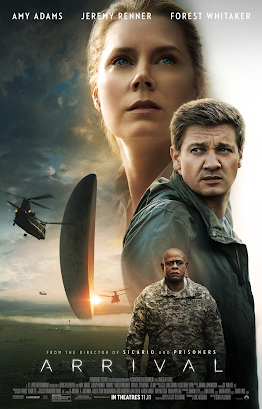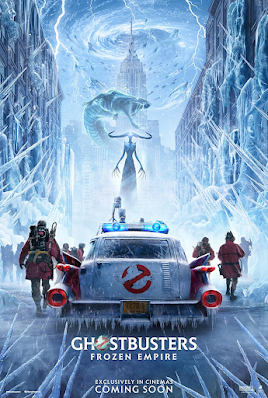Film Review #78 - Arrival (2016)
First Impression: Arrival (2016), directed by Denis Villeneuve, is a remarkable film about how Sci-Fi can delve into the complexities of human emotion and intelligence. The opening scenes of the film attract the audience with a combination of intricate soundscapes, a compelling narrative, and stunning visuals.
Cinematography: The cinematography in the film is expertly done, using a variety of techniques to enhance the depth of the story. The visual storytelling is enhanced by the use of slow-motion, camera movements that move forward, and a range of shots, including medium-close-up, symmetrical, and upward shots.
Sound: Arrival's sound design is a character in its own right. The way sound effects are used, ranging from subtle to overwhelmingly intense, makes it feel immersive and evocative. The groaning noises, muffling, rumbling bass, and alarms are just insane; they remind me of the Dune (2021) sound. It also utilizes atmospheric sounds, reverb voices, and adlibs.
Music: The soundtrack of the film is truly remarkable. It combines elements of tension, fear, and hope, which adds a whole new dimension to the movie. It beautifully weaves together a complex range of emotions, enhancing the overall experience.
Production Design: The production design of "Arrival" blends perfectly with its themes and story. The settings and costumes have been carefully designed, which helps to make the extraordinary events in the story feel more real and believable.
Editing: The film's editing is a triumph of storytelling. Its deliberate pacing and structure, especially the purposeful use of a non-linear timeline, enhance the narrative's complexity and depth. This technique not only captivates but also challenges the viewer.
Narrative and Themes: At its core, "Arrival" is a profound exploration of language, time, and human connection. The screenplay, thought-provoking and imaginative, delves into these themes with sophistication and sensitivity. The narrative's engagement with linguistics and its implications for understanding and perception are particularly compelling.
Emotional Response: The film masterfully evokes a spectrum of emotions that guided me through moments of awe, tension, and poignant introspection. Its ability to connect on a deeply personal level while exploring universal themes is one of its most striking achievements.
Highlights and Criticisms: "Arrival" excels in its integration of sound, visual storytelling, and thematic depth. Some viewers may find the non-linear narrative challenging to follow, but it will be worth your time to think about the narrative from a broader perspective.
Comparisons: The film's innovative approach to storytelling and its exploration of complex themes bear comparison to Christopher Nolan's "Inception." Both films challenge perceptions of reality and time, although "Arrival" distinguishes itself through its emphasis on language and communication.
Concluding Thoughts: Arrival (2016) is an incredible film that goes beyond the usual expectations of science fiction. The combination of its emotional impact, intellectual complexity, and technical skill makes it a must-see for a broad range of viewers. If you have an interest in languages, are curious about non-linear storytelling, or just want to watch a film that is both captivating and thought-provoking, Arrival (2016) is definitely a movie you should check out. It offers a true experience that is worth experiencing and taking your time.




Comments
Post a Comment